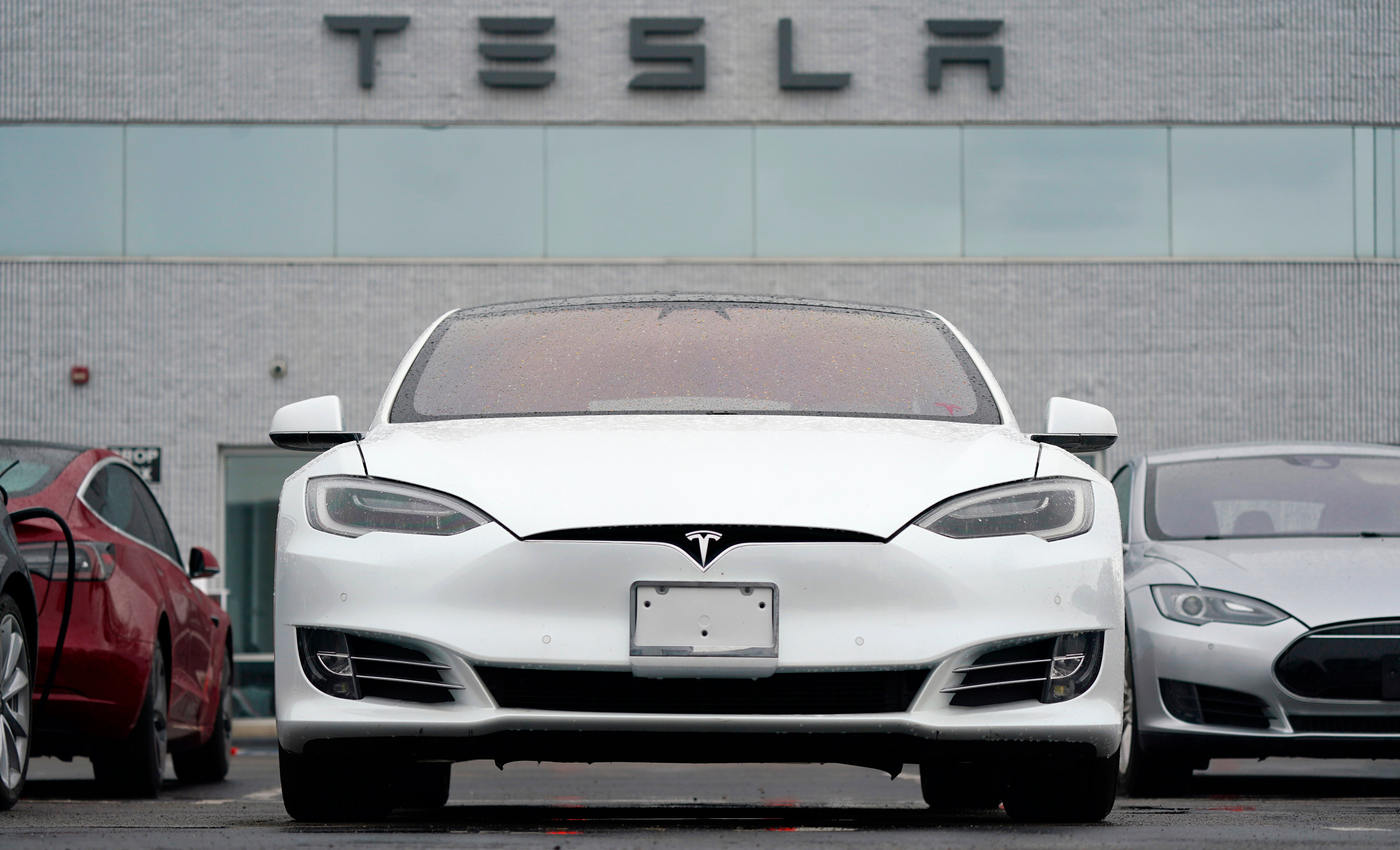Tesla recalls over 800K vehicles for seat belt chime problem
Tesla is recalling more than 817,000 vehicles in the U.S. because the seat belt reminder chimes may not sound when the vehicles are started and the driver hasn’t buckled up

Your support helps us to tell the story
From reproductive rights to climate change to Big Tech, The Independent is on the ground when the story is developing. Whether it's investigating the financials of Elon Musk's pro-Trump PAC or producing our latest documentary, 'The A Word', which shines a light on the American women fighting for reproductive rights, we know how important it is to parse out the facts from the messaging.
At such a critical moment in US history, we need reporters on the ground. Your donation allows us to keep sending journalists to speak to both sides of the story.
The Independent is trusted by Americans across the entire political spectrum. And unlike many other quality news outlets, we choose not to lock Americans out of our reporting and analysis with paywalls. We believe quality journalism should be available to everyone, paid for by those who can afford it.
Your support makes all the difference.Tesla is recalling more than 817,000 vehicles in the U.S. because the seat belt reminder chimes may not sound when the vehicles are started and the driver hasn't buckled up.
The recall covers the 2021 and 2022 Model S sedan and Model X SUV, as well as the 2017 through 2022 Model 3 sedan and 2020 through 2022 Model Y SUV, according to documents posted Thursday by safety regulators.
Federal motor vehicle safety laws require the chimes to sound when vehicles are started, and the sound stops when front belts are buckled.
The recall documents posted by the National Highway Traffic Safety Administration say the problem happens only if the driver left the vehicle in the previous drive cycle while the chime was sounding.
Tesla will fix the problem by sending out an over the air software update early this month. The safety agency says without the chime, a driver may not know their seat belt is unbuckled, increasing the risk of injury during a crash.
The company says in the documents that it's not aware of any crashes or injuries due to the problem. A visual seat belt reminder is still displayed.
The problem was discovered by South Korea s Automobile Testing and Research Institute on Jan. 6. Tesla investigated and determined that a recall was needed on Jan. 25, the documents say.
The chime still sounds if the vehicles go over 22 kilometers per hour (13.7 miles per hour) and the driver's belt isn't buckled.
The recall is among the largest in the Austin Texas company’s history and covers all four models in its lineup. Estimates by Motorintelligence.com show Tesla has sold just over 1 million vehicles in the U.S. since 2013.
The recall comes as the company faces increasing scrutiny from NHTSA, the nation’s road safety agency.
Earlier this week the agency announced that Tesla would recall nearly 54,000 cars and SUVs because their “Full Self-Driving” software lets them roll through stop signs without coming to a complete halt.
Recall documents posted Tuesday say that Tesla will disable the feature with a software update. The “rolling stop” feature allows vehicles to go through intersections with all-way stop signs at up to 5.6 miles (9 kilometers) per hour. The feature would work as long as the owner chose to activate it and the car didn’t detect any “relevant” moving cars, pedestrians or bicyclists.
Tesla’s “Full Self-Driving” software is being tested by selected owners on public roads. It cannot drive itself, and the company warns that drivers must be ready to intervene at any time.
NHTSA also is looking into a driver’s complaint that “Full Self-Driving” software caused a crash in California
It’s also investigating why Teslas using the company’s less-sophisticated “Autopilot” driver-assist system have repeatedly crashed into emergency vehicles parked on roadways.